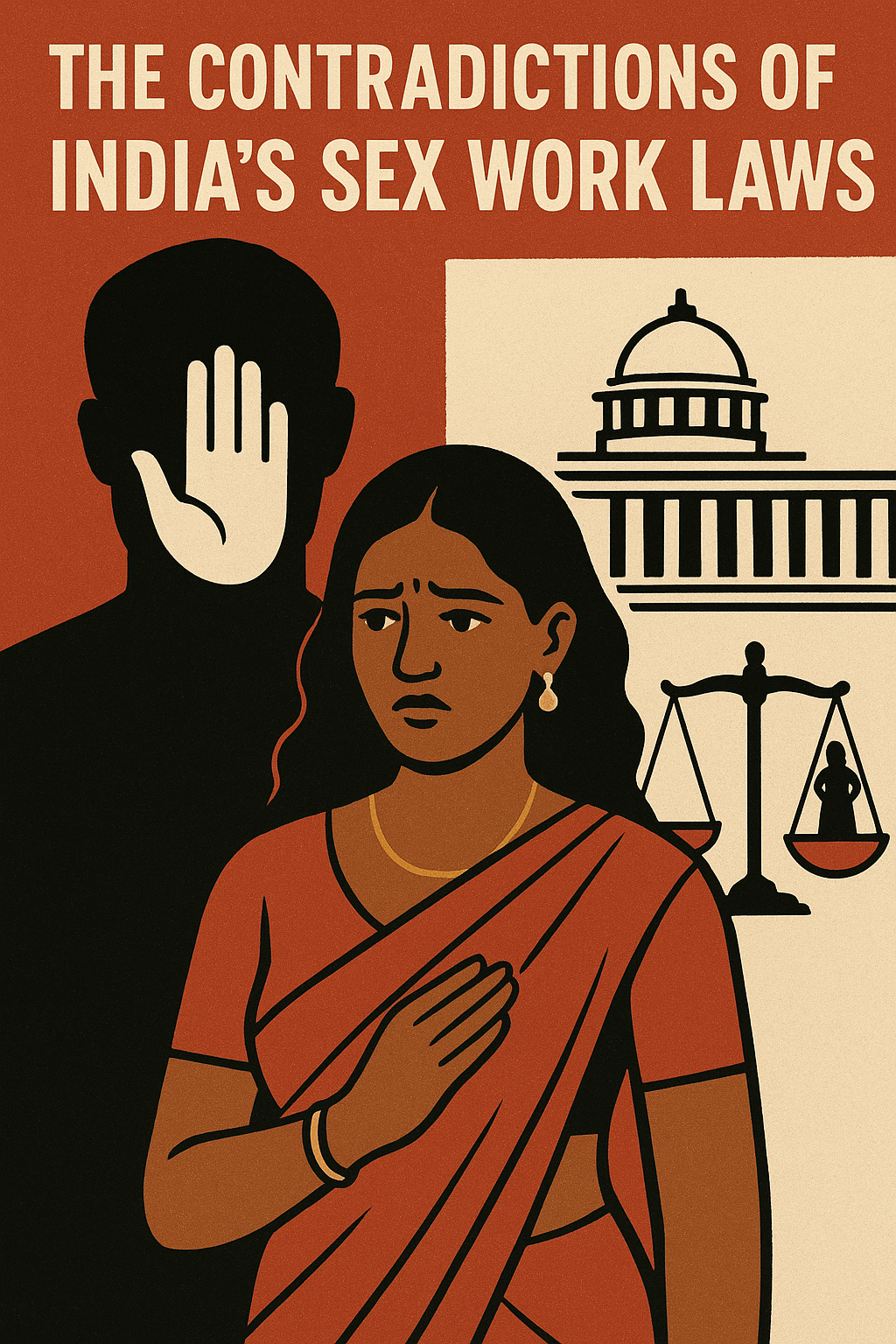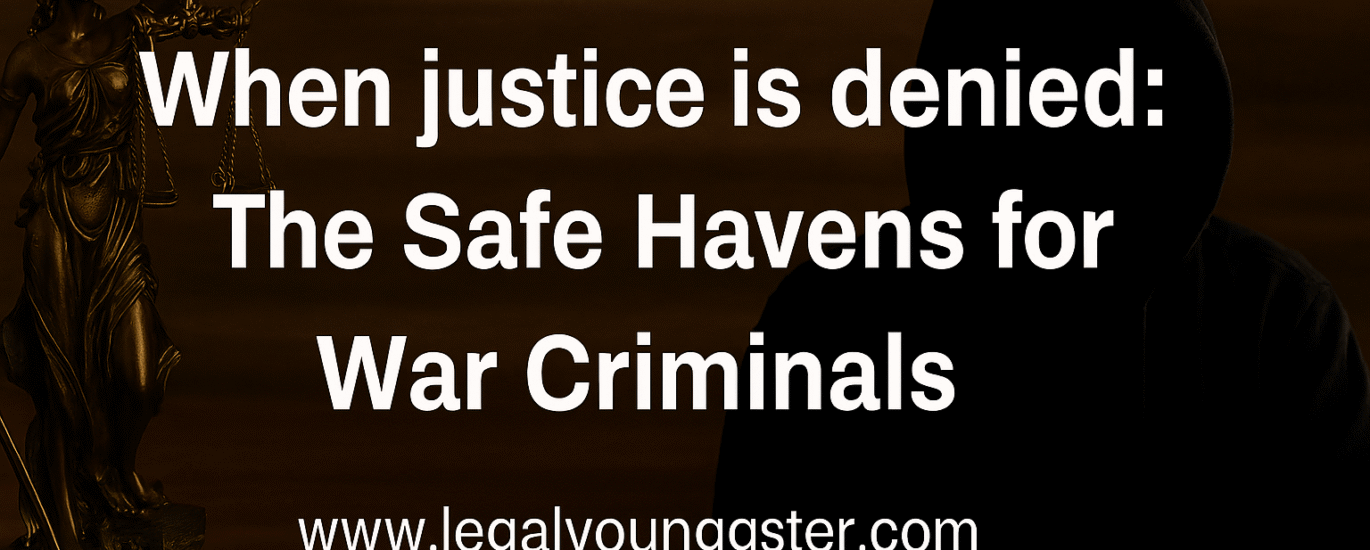



Author – Dareen Abu Qbetah
University – University of Jordan.
In a world that claims to stand for justice, war criminals continue to travel freely and welcomed by some governments , ignored by others , Despite international arrest warrants, men accused of heinous crimes from genocide to crimes against humanity find refuge in states that either lack the will or deliberately refuse to cooperate with international courts. These “safe havens” for war criminals not only weaken the legitimacy of international law but also betray the victims who continue to wait for justice. This article explores how and why states fail to arrest indicted war criminals, the legal consequences of such failures, and the broader implications for global accountability.
The Netanyahu Case: A Recent Example of Non-Cooperation:
On November 21, 2024, the International Criminal Court (ICC) issued arrest warrants for Israeli Prime Minister Benjamin Netanyahu and former Defense Minister Yoav Gallant, alleging their involvement in war crimes ,including deliberately depriving civilians of essential resources as a method of warfare, along with crimes against humanity such as unlawful killings, systematic persecution, and other grave violations of international law.
In April 2025, Hungarian Prime Minister Viktor Orbán hosted Netanyahu on a state visit and publicly stated that Hungary would not implement the ICC warrant, calling the court “politically motivated.” Hungary also initiated withdrawal from the ICC although the withdrawal does not take effect for a year putting it in immediate breach of its Rome Statute obligations
The ICC responded by opening formal non-compliance proceedings against Hungary for failing to arrest Netanyahu when requested upon his arrival
The action provoked angry backlash: the U.S. labeled the warrant “outrageous” and enacted legislation to sanction the ICC, and key EU nations warned that they, too, would not carry out the warrant. At the same time, Human Rights Watch and Amnesty International criticized Hungary’s move as a blow to international justice.
Hungary’s blanket refusal to detain Israeli Prime Minister Benjamin Netanyahu, even with an outstanding ICC arrest warrant, is not an isolated incident of noncompliance but rather part of an emerging pattern whereby states place political convenience above their obligations under international law, thereby rendering themselves sanctuary havens for suspected war criminals.
Hungary Prime Minister Viktor Orbán hosted Netanyahu in April 2025 on an official visit and made explicit that his administration would not honor the ICC’s warrant. Although Hungary is a full member of the Rome Statute, not only did it decline to cooperate but it announced its plans to withdraw from the Court. In this enterprise, it was taking a cue from other nations that have contested the jurisdiction of the ICC whenever national interests or political allegiances were involved.
Why do states take such a position?
Even though nations commit to global pacts promising to detain and hand over those charged with war crimes and crimes against humanity, a surprising number still ignore these promises. Leaders like Sudan’s Omar al-Bashir, Russia’s Vladimir Putin, and, most recently, Israel’s Benjamin Netanyahu have roamed the world while countries either looked away or rolled out the red carpet. So, why does this pattern persist?
The problem isn’t unclear treaties; it’s the cold calculation of power politics.
1. Strategic alliances and political interests :
When strong leaders accused of serious crimes show up on another country’s doorstep, many governments suddenly look the other way. They do this because the runners-up in that game-diplomatic relations, trade pacts, or shared security efforts-seem to matter more than what a court says.
Take Hungary in 2025. Instead of arresting Israeli Prime Minister Netanyahu, the government pointed to its friendly ties and political match-up with him.
Between 2009 and 2017, South Africa, Jordan, and Chad let former Sudanese leader al-Bashir stroll through their borders-even though they signed the ICC rules-because they wanted to keep peace with Khartoum and avoid awkward debates inside the African Union.
India and China keep cozy with Myanmar s military brass, who face genocide charges for the Rohingya crisis, choosing not to challenge people already under heavy global spotlight.
Collectively, these moves show a hard truth: whenever the demand for justice bumps into the comfort of politics, justice usually packs its bags first.
Distrust of the ICC and Sovereignty Concerns:
Many governments have come to view the International Criminal Court (ICC) with suspicion, arguing that it applies justice unevenly and is influenced by political agendas. Critics argue that the Court tends to focus on leaders from weaker or less influential states while avoiding cases involving powerful nations. As a result, some countries have resisted cooperating with the ICC, claiming its actions interfere with national sovereignty or are motivated by international politics. This growing distrust undermines the Court’s credibility and raises serious questions about the fairness and consistency of global justice.
Domestic Politics and Public Opinion :
Domestic political pressures often play a major role in a state’s decision to ignore or resist arresting individuals wanted by international courts. Leaders may fear public backlash, political instability, or damage to national pride if they are seen cooperating with foreign legal bodies , especially when the accused is viewed favorably by segments of the population. A clear example of this is Hungary’s refusal to arrest Israeli Prime Minister Benjamin Netanyahu despite an active ICC warrant. Hungarian Prime Minister Viktor Orbán publicly welcomed Netanyahu during an official visit, describing him as a friend and rejecting the ICC’s decision as politically motivated. This response highlights how political alliances and public sentiment can outweigh legal obligations under international law (The Guardian, 2025).
2.The Global Consequences of Inaction:
1. Erosion of International Justice
States that disregard ICC warrants create a weaker international justice framework. The ICC loses its power when states disregard arrest warrants which transforms war crimes accountability into an unachievable goal.
2. Victims When Justice Is Denied
Justice is deeply particular for victims of war crimes. For them, it isn’t just about legal trials or corrections it is about acknowledgment, quality, and mending. When governments fail to make suspected war culprits, they shoot a cruel message that political interests matter more than the suffering of victims. Each time war culprits remain free, victims are left feeling abandoned, their pain ignored, and their expedients for justice shattered.
This betrayal cuts deep because a numerous amount of victims spend time or even their entire lives, waiting for justice , sharing their stories , demanding responsibility, and hoping the world will hear their suffering . When states fail to act, it makes the victims feel unnoticeable, as if their lives and losses are meaningless.
Such inaction does not only deepen emotional wounds; it also blocks the path toward healing, accountability, and reconciliation. Without justice, victims are left carrying their trauma alone, and societies struggle to move forward from cycles of violence and hatred.
3. Encouragement of Future Crimes
When political leaders witness their peers evade accountability for serious crimes, it sends a clear and dangerous signal—that justice can be avoided through power and political alliances. This sense of impunity emboldens others to commit similar atrocities, knowing they may also be protected from prosecution. Inaction today not only denies justice for past crimes but also creates fertile ground for future abuses. Without consistent enforcement, the international legal system risks becoming powerless, allowing cycles of violence and repression to repeat across the world.
3.States Legal Obligations Under International Law:
The International Criminal Court (ICC) was established through the Rome Statute, a treaty that legally binds its member states to cooperate with the Court’s investigations and rulings. By ratifying the Rome Statute, these states commit to arresting and surrendering individuals indicted for war crimes, genocide, and crimes against humanity.
Under Article 59 of the Rome Statute, countries must immediately arrest any suspect who enters their territory if an ICC warrant has been issued. Failure to do so constitutes a breach of their legal obligations.
Some states defend their refusal to cooperate by referring to Article 98 of the Rome Statute, arguing that it permits them to honor other agreements related to immunity from prosecution. However, the ICC has repeatedly clarified that Article 98 does not apply to individuals accused of serious international crimes like genocide or crimes against humanity—especially when the Security Council or the Court itself has ruled that immunity cannot be invoked.
Despite these legal obligations, many states continue to ignore ICC warrants. This behavior not only violates treaty commitments but also weakens the entire system of international justice, sending the message that political interests can override the rule of law.
Conclusion
When states choose to ignore their legal duty to arrest war criminals, they do more than violate international treaties ,they weaken the global justice system and betray the victims who are still waiting for accountability. Every time a country protects a suspect, it sends a message that serious crimes can be committed without consequences, encouraging others to follow the same path.
This behavior creates a dangerous cycle where war crimes continue, victims are silenced, and justice becomes harder to achieve. It also damages trust between nations and weakens efforts to promote peace and human rights worldwide.
Justice is not only about laws or courtrooms; it is about protecting innocent people, preventing future crimes, and ensuring that no one ,no matter how powerful they are ,is above the law. If the world continues to ignore these crimes, it risks replacing truth and accountability with politics and power.